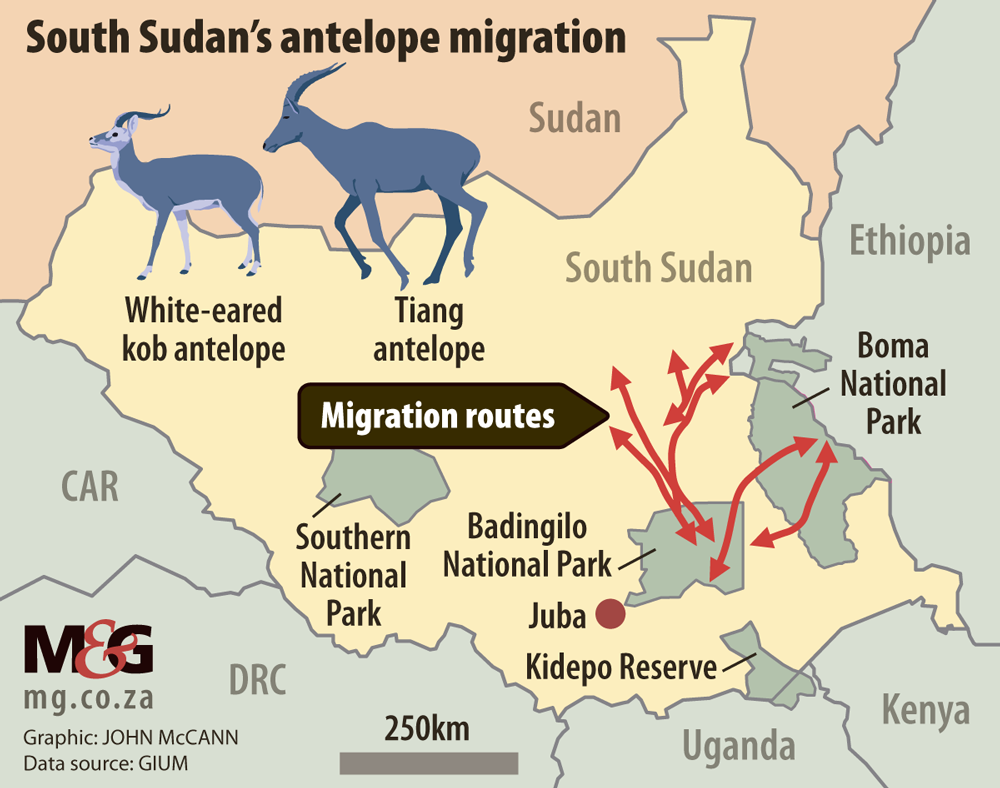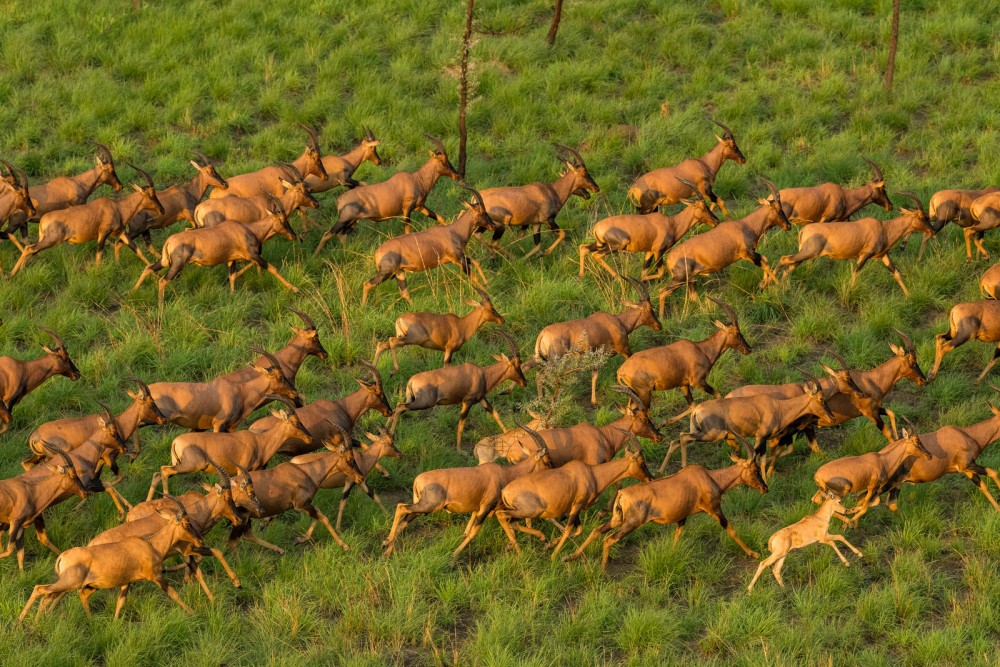The local communities in Jonglei State’s Bor County have been called upon to take a leading role in protecting the Great Nile Migration, the world’s largest land mammal migration, which sees an estimated six million antelope traverse the vast landscapes of South Sudan each year.
The appeal was made during a community workshop held in Bor County, where the nonprofit, African Parks, trained residents on their role in supporting and safeguarding this ecological phenomenon. The migration route stretches between Badingilo and Boma national parks, crossing Jonglei State, the Greater Pibor Administrative Area (GPAA), and parts of Central and Eastern Equatoria states.
“This is not just a natural wonder; it is a critical part of South Sudan’s heritage and a foundation for future prosperity,” said Emma Impink, Community Development Manager for Badingilo National Park. “We are calling this incredible movement the Great Nile Migration to give it the recognition it deserves.”
“Protecting it requires the active support of the communities whose lives intersect with this massive movement of animals,” she added.
Jonglei State has been identified as a critical area for wildlife migration, providing essential dry-season water access. The Duk Padiat swamps remain key habitats for range-limited species such as the Nile lechwe and the shoebill stork, while also sheltering the region’s remaining elephants.

Maj. Gen. Zachariah Atem Manyok, Director of Wildlife in Jonglei State, emphasized that the government’s commitment to conservation depends heavily on local cooperation.
“We engaged stakeholders across the five payams—Jale, Baidit, Makuach, Anyidi, and Kolnyang—to raise awareness about wildlife conservation,” he said. “Communities expressed a strong commitment to partner with wildlife personnel. They agreed to establish protection mechanisms, including checkpoints around Bor Town and community-based monitoring systems.”
The newly formed community initiatives will be supported by wildlife rangers deployed to each payam to strengthen enforcement and surveillance.
Local leaders also addressed the threat posed by commercial bushmeat hunting. Chief Malaak Ayuen, paramount chief of Bor County, condemned the illegal practice.
“What is happening here in Bor—the commercial hunting of bush meat—is wrong,” he stated. “It could either finish or scare off all the wildlife. We must be guardians of the animals, not their destroyers.”
Meanwhile, Ter Manyang, a gender expert, human rights activist, and Executive Director of the Center for Peace and Advocacy, welcomed the call for protection but stressed the need for a clear government policy.
“The government has an absolute responsibility to protect the environment,” he said. “However, there are no effective policies in place to guide and enforce conservation laws. The government must take the lead in directing communities on how to safeguard this vital migration.”
The workshop comes as African Parks, in partnership with South Sudan’s Ministry of Wildlife Conservation and Tourism (MWCT), continues its efforts to revitalize Badingilo National Park. Over the past two years, the partnership has combined ecological monitoring, community empowerment, and infrastructure upgrades to confirm the immense scale of the Great Nile Migration.
Conservationists say these efforts mark a critical step toward ensuring the survival of the world’s largest land mammal migration — and securing a sustainable future for both wildlife and people across South Sudan’s heartland.




